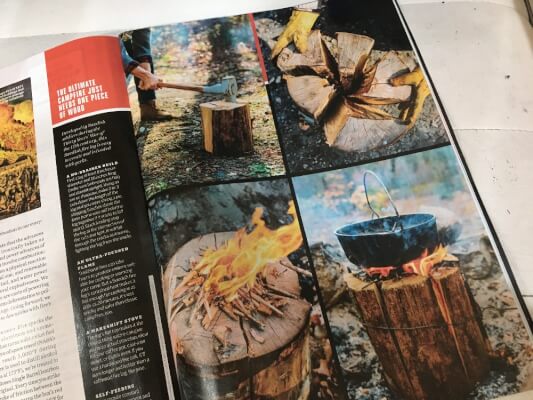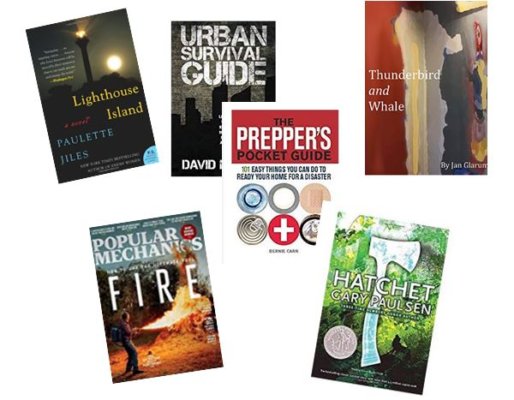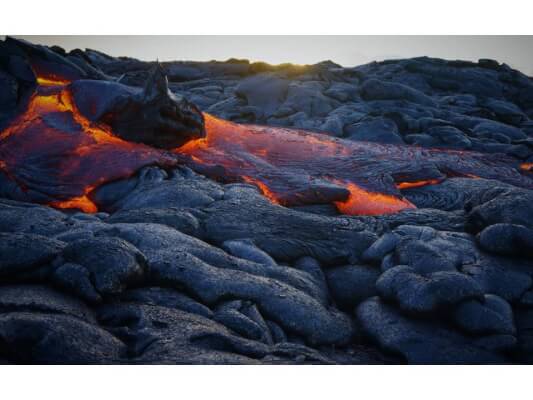Survival Entertainment – for your Vacation!

When you are lucky enough to enjoy a few days of vacation, or if you’re in the mood to CHANGE your mood, consider spending some time with some survival entertainment!
Read for escape and pleasure!
If you are a hard-core reader like I am, you’ll demand a certain level of quality in your survival books. Or magazines, as the case may be. I found the article from Popular Mechanics, shown above, to be a treat! (Have you heard of the Swedish fire? You break apart one block of wood, wrap it loosely with wire to keep it all held together and upright, build your fire on top of the center splits so the fire falls down into the cracks. Burns for several hours! Love it!)
Over the Thanksgiving holiday I managed to discover and read something totally different – a survival novel that takes place in a nearly ruined America of the not-so-distant future.
I have reviewed that book — Lighthouse Island — and a half-dozen other outstanding survival books and magazines at our companion website, Emergency Preparedness Books.
If you’re looking for some different survival themes, different levels of intensity and even survival excitement, please head over there and take a look. Several of the books are “How to” on survival; a couple are novels with plenty of accurate survival imagery, and a couple are written for young people – and young at heart like me! I’ll be adding more.

Of course, in addition to books there are . . .
Movies for thrills and excitement!
It’s the day after Christmas as I write this Advisory. Yesterday we watched the obligatory re-run of Die Hard. Not a classic wilderness survival movie – but certainly an epic survival story! (Hans Gruber, so very smooth and sinisterly multi-lingual!)
Which brings me to some more of the “Best Survival Movies Ever Made.” Here’s a short list. Which of these have you seen? Would you watch them again?
- Most recent disaster film, which you’ve surely heard of if you haven’t seen it: San Andreas! Sure, it’s not the most scientifically accurate disaster movie. (Savvy preppers here in California find it pretty easy to pick out the faults – a pun!) But what special effects! And Dwayne Johnson!
- The Martian – science fiction full of well — science mixed with humor! I read the book a few years ago, and I loved it. (Made me laugh out loud even though the hero was stranded on Mars and had to survive on practically nothing but his brains until he could be rescued! The thinking man’s survival skills on display . . .!) Of course any movie with Matt Damon deserves a Golden Globe nearly sight unseen.
- Just the next year a traditional survival film actually won an Oscar – in fact, many, many other awards, for that matter. It is The Revenant, starring Leonardo DiCaprio. The scene: western frontier wilderness in the early 1800s. The challenge: winter weather, grizzly bear and other wildlife, plus some treacherous travel companions. Hollywood loved this film, and movie-goers turned it into a blockbuster.
Now, there have been survival movies for years, well before the three described above which you’ve probably at least seen ads for.
How about some survival movie classics?
- Into the Wild came out in 2007, directed by Sean Penn. It’s an absorbing story of a young man who leaves his comfortable life to test his survival skills in Alaska. I saw this film myself several years ago – every spectacularly beautiful and excruciating minute of it. This is more drama than adventure. And it’s good!
- Volcano, starring Tommy Lee Jones (another must-see actor) as an emergency manager. It came out in 1997 and is available on Netflix. Set in L.A., this one line describes it all – “Hot on entertainment!”
- Twister was the second highest grossing film of 1996! It followed storm-chasers across Oklahoma. A Rotten Tomatoes review cites the film’s “visceral thrills” and again, special effects.
Learn some good stuff via documentaries and semi-documentaries.
In no particular order, here are some films that captured the interest of professional members of the Emergency Management group on LinkedIn. I’ll be checking these films off my own holiday viewing list. (One or the other might be appropriate for showing at a neighborhood meeting.)
- Fire in Paradise, which aired on Frontline, covers the 2018 wildfire that basically destroyed the town of Paradise in California. It’s a 39 minute documentary with interviews of people who went through the ordeal. You’ll learn a lot about evacuations.
- Dirty War is a docu-drama first broadcast in 2004 by the BBC and made available in the U.S. through HBO. The situation: A radioactive “dirty” bomb detonates outside a subway station in London. At that time, this was a thriller. Today, it’s become too real.
- American Blackout is now top of my own list. Produced by National Geographic, the 90-minute docu-drama “reveals in gritty detail the impact of what happens when a cyber-attack on the U.S. takes down the power grid.” The power shut-downs earlier this year gave us a taste . . .
There’s plenty more survival entertainment where these came from!
These movies are available at Amazon and other streaming services. Most are available for purchase at Amazon, too, if that’s how you want to enjoy them. Click away here!
Of course, not all survival fiction may be award-worthy.
But today we’re talking about a vacation change of pace! If necessary, you can always pick out the totally unrealistic moments and describe to your family members what it REALLY would be like. (They may not appreciate the interruption, so maybe save those criticisms until afterwards!?)
At the very least, a book or movie can start a conversation at home to inspire new interest in emergency preparedness and response. Maybe you’ll get ideas for a family adventure tour, or some cool gifts.
Who knows what might happen?! We’re talking survival entertainment here! Hope you enjoy some of these!
Virginia
Your Emergency Plan Guide Team
P.S. Of course you have your own survival entertainment favorites! Let us know what they are!

 “It’s just part of living here,” one of Hawaii’s residents is quoted as saying over the weekend. He wasn’t planning to evacuate from his home, even though fissures were opening in his neighborhood and lava flows from the Kilauea eruption on Friday were approaching. “I’ve been through this a dozen times.”
“It’s just part of living here,” one of Hawaii’s residents is quoted as saying over the weekend. He wasn’t planning to evacuate from his home, even though fissures were opening in his neighborhood and lava flows from the Kilauea eruption on Friday were approaching. “I’ve been through this a dozen times.”